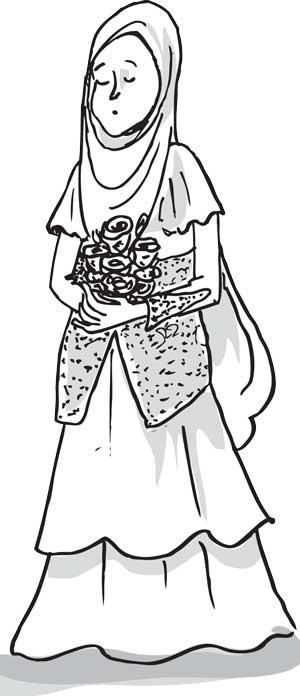Reply To:
Name - Reply Comment
The UNICEF World Children’s Report 2017 reveals that globally, more than 12 million girls marry below the age of 18 every year. An estimated 200,000 children in the United States were married between 2000 to 2015, according to ABC News. The UNICEF report on children in Sri Lanka showed 2% of children married before the age of 15 and 12% were married at 18 years of age between 2010 - 2017.
As a region, South Asia has the highest rate of child marriage -- 17% of women are married by the age of 15 and 45% by the age of 18. Sri Lanka ratified the Convention on the Rights of the Child in 1991, which sets the minimum age of marriage at 18 and the Convention on the Elimination of All Forms of Discrimination Against Women in 1981 obligates states to ensure free and full consent to marriage.

Our country has committed to eliminate early child, and forced marriage by 2030 in line with target 5.3 of the Sustainable Development Goals. However in its progress report during the 2018 Voluntary National Review at the ‘High Level Political Forum’ -- the mechanism through which countries report their progress on the Sustainable Development Goals -- the government did not report on the progress made against target 5.3.
In Sri Lanka the legal marriage age is 18. But a decades-old community law called the Muslim Marriage and Divorce Act (MMDA) allows Muslim community leaders, who are all men, to decide the age of marriage. There is no minimum age, although a marriage involving a girl under 12 requires special permission from an Islamic magistrate.
Muslim girls and their mothers have suffered in silence for decades but Muslim women are now coming forward to seek reform of the MMDA, despite serious threats from mullahs and other conservative community leaders. Today calls are growing for this law to be amended.
Human rights lawyer Ermiza Tegal says Muslim child marriages have gone up from 14% to 22% within a year in the Eastern Province, a rise attributed to increased conservatism.
Ameen Izadeen writing in the ‘Daily Mirror’ highlights the fact that Muslim women worldwide, have over the years protested the discrimination by Muslim leaders and religious scholars (all men), misinterpreting the scriptures and ignoring their spiritual meaning and faced threats for the same.
Last week Muslim women activists in Sri Lanka called a news conference to highlight the problems and plight of Muslim women in Sri Lanka. They urged the community’s parliamentarians and religious scholars to act urgently to implement reforms needed to make the Muslim Personal Law (MPL) compatible with “God’s compassion and justice” and end the suffering of Muslim women and girls. They highlighted the abominable practice of the triple ‘talaq’ which enabled a Muslim man to divorce his wife and leave her destitute.
Mullahs in the country have been refusing to change these archaic, discriminatory laws claiming they needed to ensure governments will not intrude or try to pass legislation contrary to their (mullahs) interpretation of scripture. The reality however is that all men/women are equal in the eyes of God. There can be no space for two sets of laws governing different groups of people in a single country.
Our giant neighbour India has already set an example by banning the triple ‘talaq’ divorce and criminalising the act. MP Faizer Mustapha announced on July 12 this year that Muslim MP’s had unanimously decided on raising the minimum age of marriage to 18 years. Even more importantly, one of the world’s most prestigious centres of Islamic learning has issued a fatwa against child marriage, saying marriage should be based on the consent of both parties and “particularly the young woman”.
The Deputy Grand Imam of al-Azhar, considered by some Muslims to be the highest authority of Islamic jurisprudence, hammered out the document with his team at the first African summit, which took place in Senegal in June this year, on child marriage and female genital mutilation, .
With the Deputy Grand Imam of al-Azhar condemning the ongoing discrimination against women and going to the extent of issuing a fatwa against these discriminatory practices; it is time to pay heed to the voices of Islamic women in our country. We need to stand as one with them in their struggle for justice and introduce legislation to end the suffering and discrimination they are being subjected to, which in fact makes them unequal citizens.